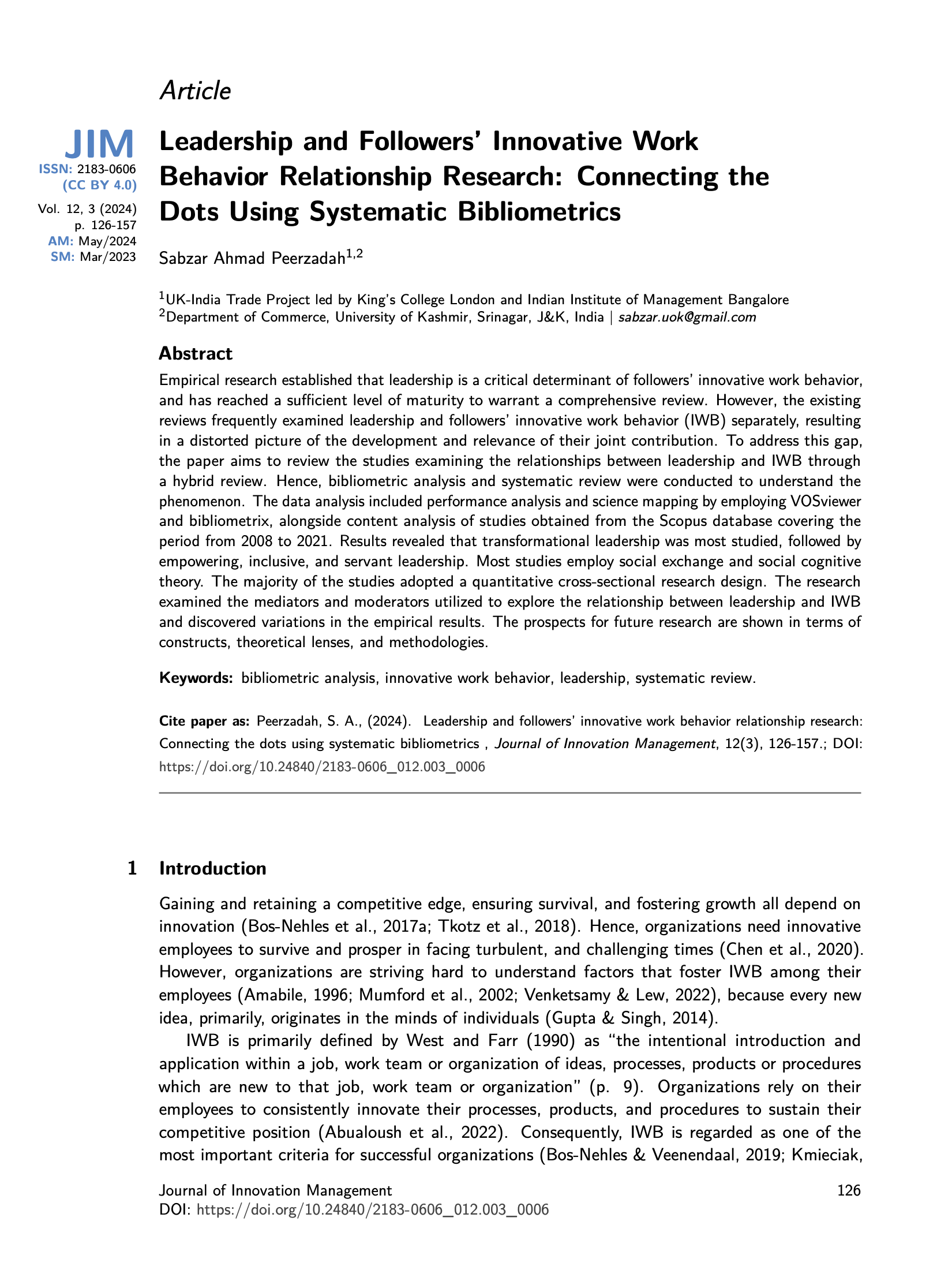Leadership and Followers’ Innovative Work Behavior Relationship Research: Connecting the Dots Using Systematic Bibliometrics
Main Article Content
Abstract
Empirical research established that leadership is a critical determinant of followers' innovative work behavior, and has reached a sufficient level of maturity to warrant a comprehensive review. However, the existing reviews frequently examined leadership and followers’ innovative work behavior (IWB) separately, resulting in a distorted picture of the development and relevance of their joint contribution. To address this gap, the paper aims to review the studies
examining the relationships between leadership and IWB through a hybrid review. Hence, bibliometric analysis and systematic review were conducted to understand the phenomenon. The data analysis included performance analysis and science mapping by employing VOSviewer and bibliometrix, alongside content analysis of studies obtained from the Scopus database covering the period from 2008 to 2021. Results revealed that transformational leadership was most studied, followed by empowering, inclusive, and servant leadership. Most studies employ social exchange and social cognitive theory. The majority of the studies adopted a quantitative cross-sectional research design. The research examined the mediators and moderators utilized to explore the relationship between leadership and IWB and discovered variations in the empirical results. The prospects for future research are shown in terms of constructs, theoretical lenses, and methodologies.
Article Details
Authors who publish with this journal agree to the following terms:
- Authors retain copyright and grant the journal right of first publication with the work simultaneously licensed under a Creative Commons Attribution License that allows others to share the work with an acknowledgement of the work's authorship and initial publication in this journal.
- Authors are able to enter into separate, additional contractual arrangements for the non-exclusive distribution of the journal's published version of the work (e.g., post it to an institutional repository or publish it in a book), with an acknowledgement of its initial publication in this journal.
- Authors are permitted and encouraged to post their work online (e.g., in institutional repositories or on their website) prior to and during the submission process, as it can lead to productive exchanges, as well as earlier and greater citation of published work (See The Effect of Open Access).

